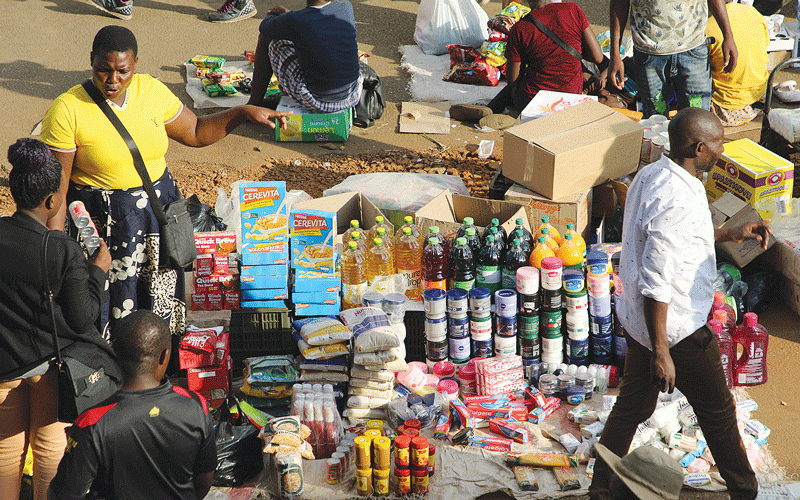
BY EVANS MATHANDA
The Covid-19 pandemic may have caused a lot of business drawbacks, but it has indeed been an opportunity for service providers of products such as communication enablers.
The pandemic has accelerated the need for internet services to everyone, including the vulnerable communities. People with affordable internet connectivity are able to work from home, learn remotely and even shop online, something that had not been known in this part of the world.
The cost of internet is however prohibitive in many third world countries including Zimbabwe, but, according to British technology research, Sudan leads nine other African countries that charge its citizens less than $1 for a gigabyte (1 GB) of mobile data.
The North-eastern Africa nation offers the lowest cost of internet access over a smartphone and is ranked among the top five cheapest countries for mobile data, in the world, according to the Worldwide Mobile Data Pricing 2021.
The cost of mobile internet in Sudan is $0.27 for every gigabyte of data. The result is that access to the internet has become available in many of the densely-populated areas across the enormous country.
Algeria is second-cheapest at $0.51, while Somalia takes the third-slot on the continent, at $0.60 per 1GB of mobile data.
In Zimbabwe, the majority of the population has no internet access, according to the World Economic Forum and where access is available, it is too expensive.
- Chamisa under fire over US$120K donation
- Mavhunga puts DeMbare into Chibuku quarterfinals
- Pension funds bet on Cabora Bassa oilfields
- Councils defy govt fire tender directive
Keep Reading
In efforts to connect rural populations through information communication technology, the Zimbabwe government has provided base stations and village information centres in some parts of the country. But few people get connected because the internet is too slow in the communal areas.
A lot needs to be done to ensure that there is reliable and affordable internet infrastructure in both rural and urban areas.
Last year, the Postal and Telecommunications Regulatory Authority of Zimbabwe defended the data tariffs hike which it said was linked to cost movements and market changes after a public outcry over the tariff hike by telecommunication companies.
Mobile internet and data traffic increased by 10.4%, to record 25,882TB in the third quarter of 2021 from 23,436TB in the second quarter of 2021.
The recent data bundle price increase comes at a time Zimbabwe’s economy is experiencing rising inflation, local currency devaluation and increasing network input costs. Some mobile subscribers have complained on social media about poor network connectivity. For example, one can buy an Econet daily data bundle and the network fails to connect the whole day. Are there any refunds? So mobile network operators are making a killing through expensive and poor network connectivity?
Probably, high-speed internet is more than just a dream in the mist.
As a country, are we anywhere closer to using the fifth-generation (5G) cellular network technology?
That is an advanced technology that enables wireless communication to connect from cellular phones to a cell tower, which channels it to the internet. Fifth-generation is a network service provided by telecommunications carriers and is not the same thing as the 5 GHz band on your Wi-Fi router.
Fifth-generation can deliver speeds of around 50 megabits per second, up to more than 1 gigabit per second. A gigabit per second connection allows you to download a high-definition movie in less than a minute.
But we are still struggling to connect to 4G, is it possible to have 5G anytime soon?
According to Potraz, the total mobile operator revenues grew by 15.8% to record ZWL19.5 billion from ZWL16.9 billion recorded in the second quarter of 2021; On the other hand, operating costs grew by 40.9% to record ZWL12.5 billion from ZWL8.8 billion.
The state-owned mobile network operator NetOne increased the cost of One-Fi 25 gigabytes of data from ZWL$4 500 to ZWL$ 6 500. For Econet, 25 gigabites is currently at ZWL$6 550. So far, Telecel has the cheapest data, but some people say it has a pathetic network connection forcing users to migrate to other networks despite high costs of connectivity.
To Accelerate Zimbabwe’s digital transformation through ICTs, the government needs to regulate data prices in a way that does not harm both the subscribers and the mobile network operators. One can put into account that mobile operators are also affected by the inflationary pressure just like any other business in Zimbabwe. However, high cost of data does not only affect online content creators who make a living through Google Adsense and social media consultancy, but the general citizens and e-learning activities can be disrupted.
The African continent has the lowest number of internet connections, according to the International Finance Corp. Many African countries have less than a 20% broadband penetration rate. The problem is compounded by the lack of access to reliable and affordable electricity.
To bridge the digital divide in Zimbabwe, the government should make collaborative efforts with other stakeholders to ensure that there is equitable distribution of internet services across the country. Zimbabwe is still far from gaining stability in internet connectivity.
For this reason, the government needs to deliver reliable infrastructure and affordable access as well as promoting public-private partnerships, and providing training to improve digital skills.
According to the United Nations, governments can become powerful instruments in bridging the digital divide by ensuring affordable, easy-to-use technologies. The high cost of internet connectivity, the price of technological devices, electricity tariffs, and taxes are major contributors to the digital divide in less developed countries.
- Evans Mathanda is a journalist and development practitioner who writes in his personal capacity. For feedback email: [email protected] or call 0719770038 and Twitter @EvansMathanda19










